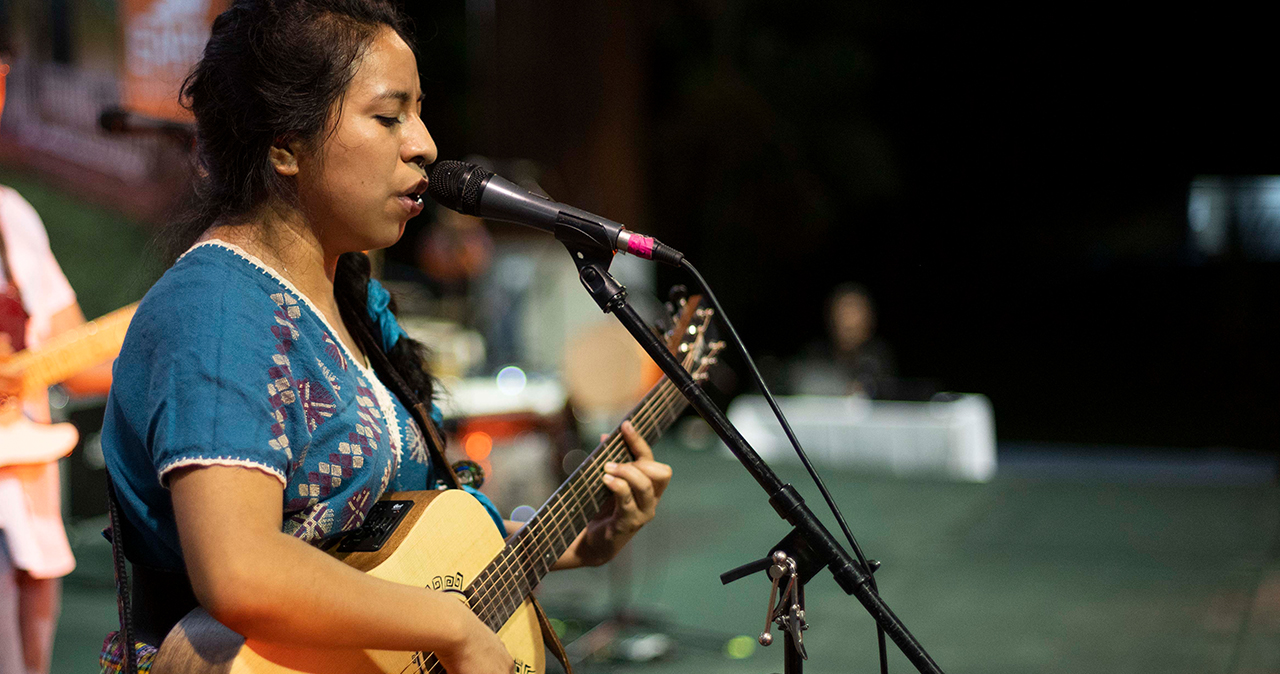In a digital and globalized world where everything moves so fast, it is essential to have references, especially female ones. It is also key for a slower and more conscious human development, to have access to life stories that cross cultural and gender barriers for their sincerity, courage and sensibility. On Wednesday, May 25, we inaugurated with the conference “Inspiring women”, a series of events focused on mobilizing others through the stories of different women. These events are made possible by the Dr. Beatrice E. Lewis Women’s Fund, established by her family to honor her legacy and her life, dedicated to inspiring others, primarily women. The family joined us for the event to witness the words and music of five powerful women.
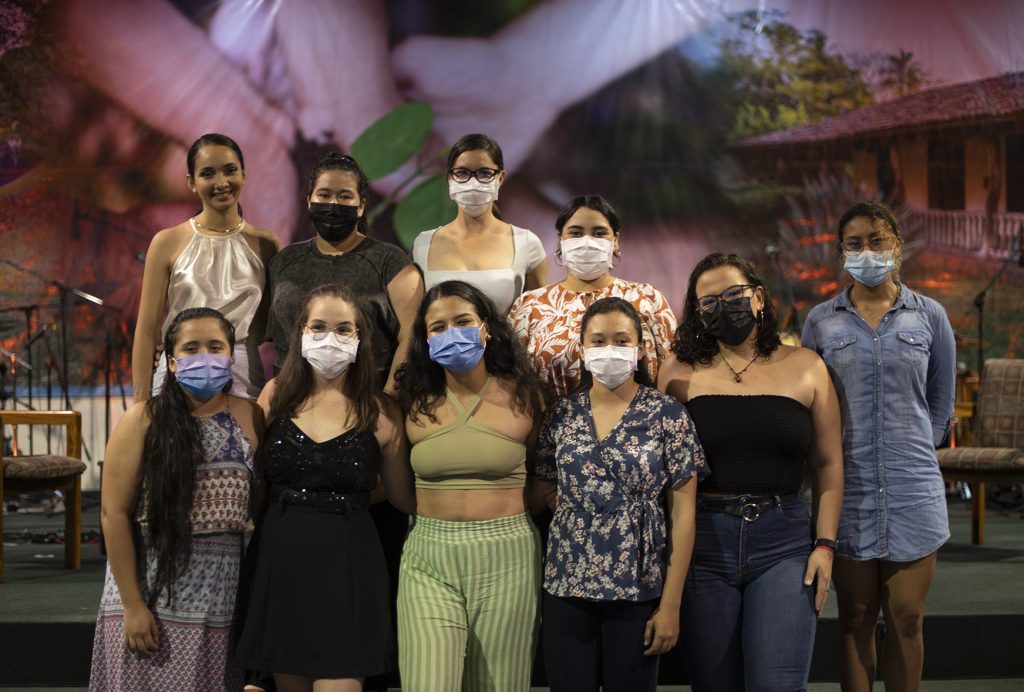
The members of the Women’s Circle, a space for reflection, dialogue and sorority created in 2019, were part of the organization of the conference and had the opportunity to tell all the spectators about the importance of the Circle within the University to generate a network of support from respect, tolerance and love.
We were fortunate to have the presence of graduate Gina Borrero (‘01, Colombia), Guatemalan singer-songwriter Sara Curruchich, former Costa Rican congresswoman Silvia Hernández, singer and composer Maf É Tula (María Fernanda Sáenz) and musician and cultural manager Anyul Arévalo.
We share with you some of their reflections:
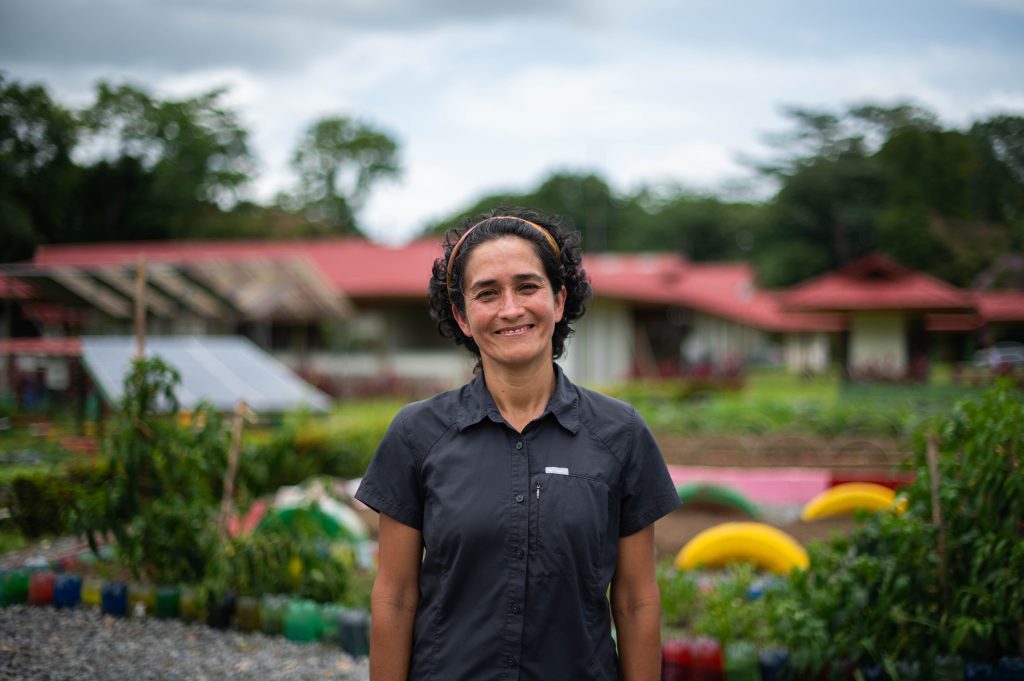
Rescuing seeds, generating more life
Gina Borrero has dedicated her career to socio-productive projects in indigenous and rural communities. She specializes in resource management, waste management, agroecology, soil microbiology, garden design, among others. In sharing her story, she emphasized the importance of giving others access to education, gender equity and agrochemical-free seeds and water.
“I do what I am passionate about: planting, caring for the land, rescuing seeds, producing more life; reaching people who for multiple reasons don’t have access to education, but in this center where I work they manage to learn about organic agriculture, some without knowing how to read or write. I have worked five years as a teacher of organic agriculture: medicinal crops, organic fertilizers, seeds; all this has given me the opportunity to meet women who have allowed me to understand that in this world we need more people with values and principles, who promote life, the health of Pachamama, the diversity of seeds, relationships with microorganisms. At this time when everything I have experienced resonates with a lot of meaning, I want to continue working for people, for the restoration of agroecological systems and for food sovereignty. That is the origin of my life project, which I named Campo Alegre,” Gina said with a serene and firm voice.
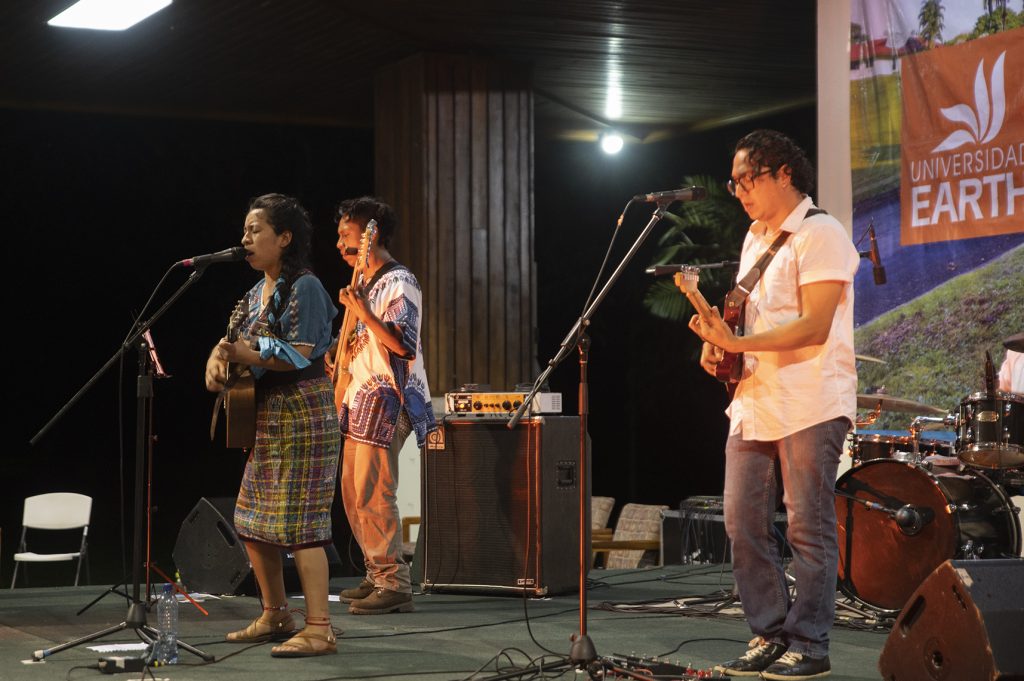
An embrace of our identity
Sara Curruchich is the first indigenous Guatemalan songwriter to sing in Kaqchikel, her mother tongue. Her voice and her message of love, awareness, respect and defense of life have made her a source of hope for many people, mainly indigenous women who consider her a reference. Sara shared her words with the entire EARTH community and shared her songs and music, accompanied by her band.
“Who are we, who are you? The fact of naming us as a seed, as hope, already means that we can generate a transcendental change, not only for us, who are converging in this space and in this time, but it is a significant change for our communities and for all the places we can reach. Let us not give in, silence is a very beautiful thing when it is our decision, but not when it is an imposition. We take the word because it belongs to us, it has belonged to our grandmothers and to the people. We take the word because it is our right, because to take it is to do justice. There is so much to learn, so much to sow, so much to weave and so much to articulate. That is one of the greatest teachings of the earth itself: the articulation between the roots of the trees that support the mountains. We are root, we are seed, we are like a textile that expands and flourishes,” said Sara.
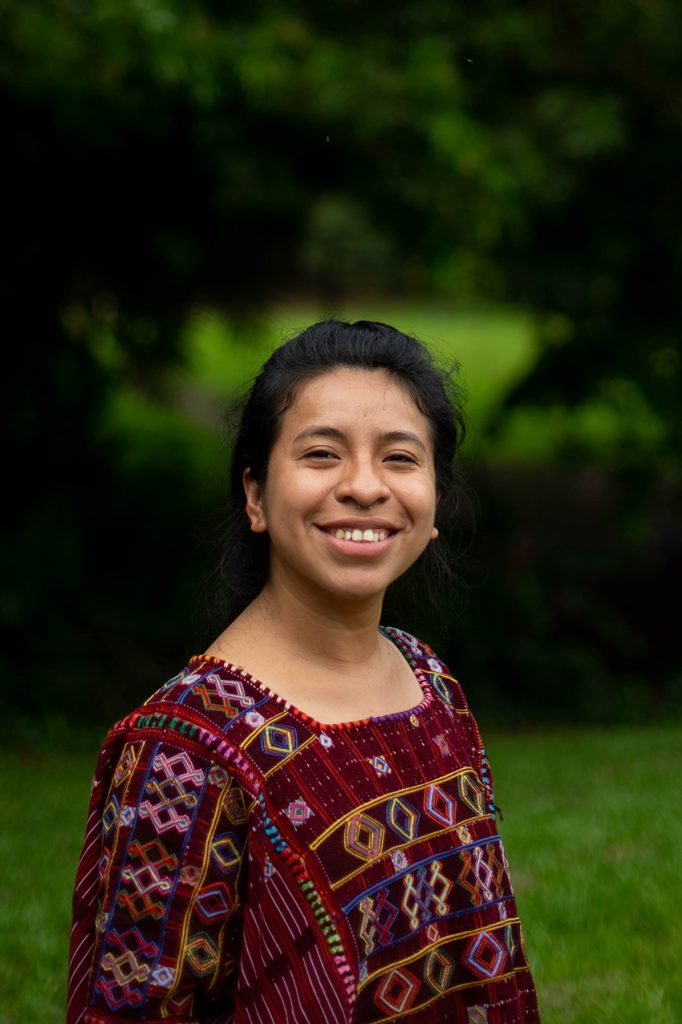
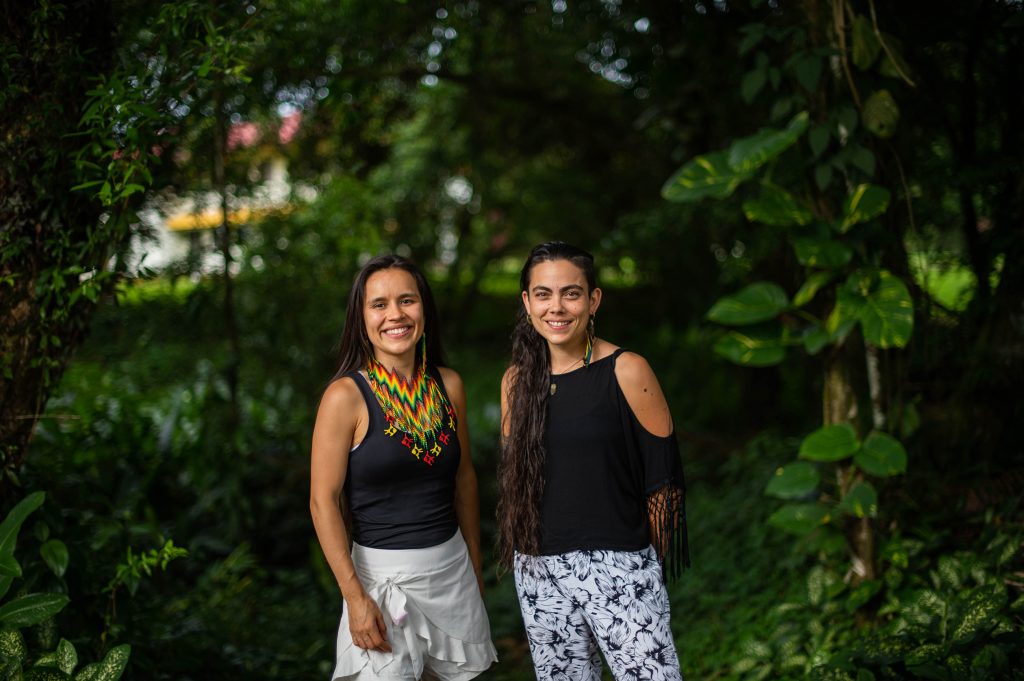
Y somos todas
Anyul Arévalo knew from a very young age that she wanted to dedicate to music, and very specifically to percussion. She is a music teacher, activist, researcher, producer and cultural manager. She coordinates the Feminist Percussion Ensemble Tocá el Tambó, a pedagogical and interdisciplinary proposal that has allowed her to weave a community of creative women. Maf É Tulá makes music because for her, music is life. She has traveled to many countries sharing her compositions, which address issues such as mental health, children’s rights and the struggle of women. Together they composed the song “Y somos todas” (And we are all), as part of a campaign by the International Education Network of Latin America (IEAL) to raise awareness of Convention 190 of the International Labor Organization, which talks about the right to safe workplaces, free of violence and harassment.
“We love the song because we believe that through education we can transform the world. This campaign was born from there, with the desire to inform people about the existence of this convention 190 that talks about a basic right. When we sing we try to include many values, a lot of awareness, a lot of struggle, a lot of celebration, and this is what we do with this song,” says Maf.
“Through music we want to carry out a process of decolonization of a territory that has been violated. We want that not only women in urban regions, but also in rural areas, have spaces for reflection through music and to be able to demand respect through it,” adds Anyul.
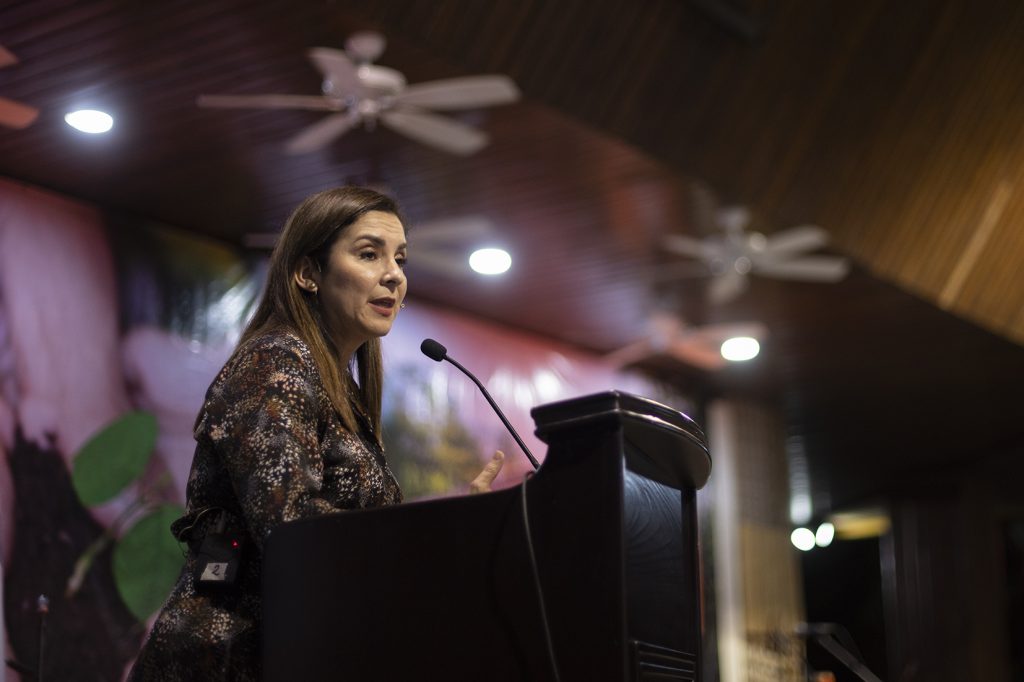
Builders of the road
Silvia Hernández is the fourth woman to preside the Legislative Assembly of Costa Rica and the second woman to preside the Congress in the same constitutional period for the first time in the country’s history. During her term in these recently concluded positions, she focused her work on issues of competitiveness, innovation, and strengthening public finances, as well as better job opportunities for the population with an emphasis on women. Silvia shared about the importance of women in politics and recalled the great Costa Rican women who closed the gaps and forged the path so today there is more participation in these spaces that have been historically dominated by men.
We thank the Lewis family for making this event possible, where we all learn and are inspired by the stories of powerful women, women who inspire.
